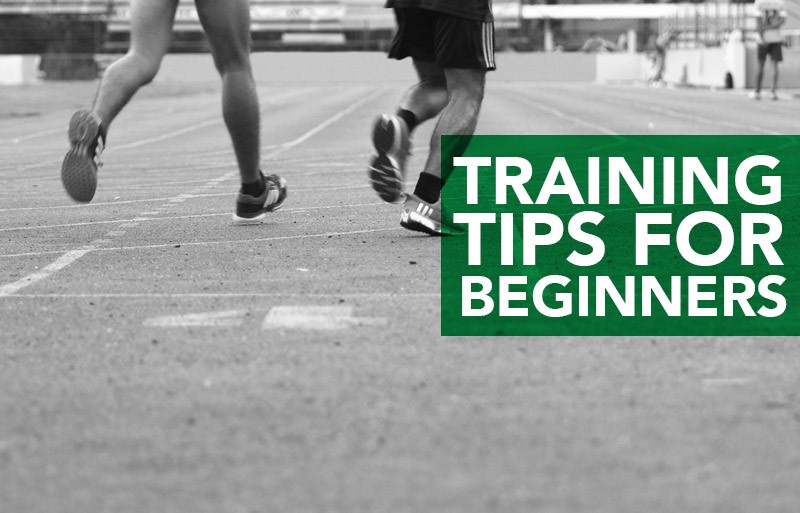Summer is officially over and the gyms are full. As every man, woman and dog hits the treadmills and weight racks, determined to look better next year, Toby Cryne talks training tips for beginners – perfect for those fresh faces!
Social media has changed the perception of the health and fitness industry in recent years. Gone are the popular misconceptions that were once applied to the world of muscle and fitness as Twitter and Facebook feeds are now completely overrun with six-pack clad men and women. It seems that now, for the first time in my life at least, cover-model fitness is seen as something that those in the mainstream can actually aspire to. Hashtagging their posts with #fitfam, #workoutwednesday and #mondaymotivation it seems that every gym goer in decent shape has some iconography of themselves on the internet.

It can be equally inspiring and daunting for those new to the lifestyle, especially in the post-summer-blues.
So how does one set sail on the sea of fitness and shun the shores inactivity? Check out my training tips for beginners below!
Finding your love
Perhaps the most important aspect of beginning a healthy lifestyle is the decision factor. After all, with so many different types of exercise available to the modern day consumer, how does one decide what to take part in?
A host of consumer surveys have established that gym drop-out rates can be anywhere from 60% – 80% in the first eight weeks of joining. A harrowing statistic when one thinks about it. But just why is this?
Are people lazy? Have they bitten off more than they can chew? Or, more probably, do they just dislike going to the gym? A healthy lifestyle works best when one sees it less like a quick fix and more like a lifestyle shift. Sure, many of us join the gym to lose weight or build a little bulk here and there, but this attitude towards getting in shape for a set period of time could be your Achilles heel.

Choosing an activity that you enjoy will not only help you stay interested, it can actually aid your performance by increasing motivation. Numerous studies have shown that not only does exercise improve your mood and help those suffering from depression; the enjoyment of the exercise can be directly linked to the performance.[2] In simple terms, if you don’t like the gym – don’t go! Instead, try something that exhilarates you personally and challenges you, better still – try a bit of everything.
Still stuck? Most gyms and fitness centres offer trials so you can try out a class or two before you join.
Feeding you ambition
The old adage goes that “six-packs are made in kitchen” and whilst this may be true, a common pitfall for beginners is that many simply don’t eat enough. Spurred on by the leanness of the Facebook elite, many newcomers starve themselves of either calories or nutrients in order to achieve results without even realising it. Ketogenic diets, calorie restriction diets and even meal replacement shakes are exceptionally popular in the modern day, yet many people don’t realise that such dietary restrictions can have negative effects on the body as a whole.
Defined by the Medical Dictionary as; “a severe or total lack of nutrients needed for the maintenance of life”, starvation occurs when the body doesn’t receive the correct amount of calories or nutrients needed for the day’s activities. Improper fuelling from fast-track diets can result in chronic fatigue, training plateaus, depression and even severe mood swings – not to mention terrible performance.
In contrast to the common perception, the state of starvation doesn’t require one to be figuratively starving or even hungry at all. Eating too few calories to fuel your new daily activity levels may yield quick weight loss but the effects can be devastating.
Endurance Sports: Those taking part in high calorie burning activities such as running, cycling or any other form of high intensity cardiovascular exercise will need not only more calories but more carbohydrates too. Opting for a diet that is low in any of the vital nutrients protein, carbohydrate or fat will hinder performance in such sports and cause you to hit the wallexceptionally quickly. During such exercises a greater demand is placed on the glycogen reserves. As such, ensuring an adequate supply of low-gi carbohydrates will boost your workouts and daily routine. Check out Alexis Fletcher’s Tips for Stable Blood Sugar Levels for more information and try my Super Seed Energy Bars next time you’re on a long slog in the woods.
Muscle Building: Low carbohydrate diets are exceptionally popular in the muscle and strength world but the truth is that such diets cause a host of pitfalls, my Low-Carb Diet Explained article explains merely a few of those. The reality is that though those in the muscle building world may need more protein than thier running counterparts, shunning carbohydrates completely will often yield ineffective workouts and plateaus in performance.

Weight Loss: In extreme weight loss, though the body is burning its own fat for fuel, eventually it will turn to its own tissue. This can cause the vital organs to shrink, anaemia, immune deficiency, reduction in muscle mass, decreased sex drive, decreased digestion, lower body temperature and chronic diarrhoea – even if you are still technically overweight. Most don’t realise that when coming from a sedentary background, one actually needs to eat more calories than normal with the safe recommendation for weight loss being 2lbs a week maximum.
In order to achieve a safe level of weight loss, you first need to work out your Basal Metabolic Rate (BMR) which is the amount of calories that your body needs per day to function normally at rest. When this has been calculated you need to factor in your calorie expenditure from exercise which will give you the figure of how many calories you roughly burn in a day. Aiming to eat 500kcal less than this figure per day should equate to 1lb per week of weight loss (again, roughly). Check out this online calculator over at Bodybuilding.com
These figures, as suggested, will enable to you to create a rough dietary plan but will be affected by a number of factors such as muscle to fat ratio, age, weight, lifestyle and gender. A personal trainer or nutritionist will be able to tailor a nutritional program to your personal statistics using professional medical equipment.
Resting your legs
Exercise makes you feel great, doesn’t it?
Sure that first 10 minutes on a cold Monday morning may be undoubtedly difficult, but nothing quite equates to that feeling following a tough workout. A multitude of studies have found that exercise can alleviate depression by increasing endorphin levels in the brain. The consequences of such can be quite addictive, especially when physical results such as weight loss, muscle definition or respiratory fitness become apparent. The result of this new found addiction can be hard to set aside once it becomes a daily routine, yet improper rest not only decreases performance levels, it can also lead to injury. During periods of rest, the body goes to work to improve itself physically so that the next time it is put under stress it will be able to better cope with the demands of the stimuli. If one takes too little time to recover, the body will not be able to catch up with the demands placed on it. As a result, a condition known as overtraining syndrome can occur. Overtraining is characterised by a reduction in progress, loss of strength and fitness and possible development of depression extreme fatigue.
If that wasn’t enough, overtraining causes a number of physiological imbalances in the body such as; raised cortisol (stress hormone) levels, calorie-deficiency, protein deficiency (especially when coupled with low calorie diet), constant muscle soreness, elevated resting heart rate, increased injury rate and slower recovery.

Conditions such as overtraining syndrome are easily avoided by ensuring that enough time is left to recover following each workout and ample recovery time is placed between particularly taxing workouts. Ensuring that you get enough sleep, enough calories and enough water will help you to stick to your new found fitness plan, keep you injury free and, above all, keep you healthy and happy.


